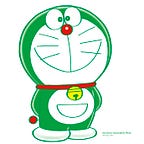About the Movie “Call Me Chihiro”
Chihiro is alone but surrounded by people. She is an outcast, yet liked by many. She is independent but longs for company. She has friends of all ages, but she doesn’t want to make a family. This is Chihiro, who Aya grew up to be. The following are some recurring themes in “Call Me Chihiro.”
Death
After being so close to bringing herself the end to her own life, Aya finds a new life and a new name. She prefers to be called Chihiro, a symbol for her new life.
Three deaths happen in the movie, which aren’t emphasized at all, perhaps to signify that death is all around us. While Chihiro mourns the deaths of the homeless man and a seagull, she does not mourn the death of her own mother. Why didn’t she feel for her mom at all? It is perhaps because,
“We’re all aliens trapped in a human body,”
like one of Chihiro’s clients said. Even if you are a family, you won’t always understand each other if you are from different planets.
Family
The irony in this movie is that those who have what’s considered a “normal” family, are not content and rather distant from their family; and those who do not have a “normal” family are close to each other and happy.
Another titular character, the one who inspired the main character to take the name, was a family to Aya (now Chihiro). She walked Aya home, and made her feel accepted. Even though only one interaction between them is shown, it is easy to tell this interaction played a significant role in the little Chihiro’s life.
Chihiro is not attached to her family, and the same goes for Taniguchi. He didn’t want to take after his father, and that’s where they find something in common. They spend the night together, but nothing else happens; perhaps because they don’t want to be attached and then be disappointed like how they were at their parents.
Relationships
Chihiro is the bond that brings all the outcasts — a school girl abandoned by her friend group, another school girl who was cast out of her home by her parents, a boy with a single mother who works night shifts, the single mother, a coworker who lost her eyesight — together.
She even helps the homeless man and brings him bento boxes, and even opens up her home so he can wash up. He enjoys her company, and she does too. She does this out of care, but also for companionship.
However, Chihiro doesn’t exert her energy to find a deeper or a more meaningful relationship. And she explains the reason herself:
I can’t get drunk on love. It’s the same as people who can’t drink. They get sick if they drink too much. They might even die. So why even drink in the first place?
Acorn
Even as an adult, Chihiro gives acorns as a present. It is something she gave the older Chihiro as a child. And she gives an acorn to Tae as well, which reminds Tae of her daughter who did not enjoy collecting acorns with her.
Acorns aren’t something you’d expect to receive as a gift from an adult. But Chihiro does this, and manages to spark emotions. It is her way of showing appreciation and how much she likes them. A sign of innocence one wouldn’t expect to see from an adult who’s worked in the underworld.
Fish
At the Summer festival, Chihiro cannot seem to catch any goldfish at all, while Basil does. This may refer to how Basil knows what she wants in life, but Chihiro does not.
Chihiro is like the goldfish Basil is watching through the aquarium glass; Chihiro lives near the water, and she is surrounded by windows, which makes her place looks like a water tank. She even says she is “at the bottom of the water.” What was she dreaming about at the bottom of the water, I wonder?
Tae and Chihiro find themselves surrounded by water — parked in front of the harbor and out on a rainy day. Chihiro wears sunglasses like Tae who is blind now, maybe to understand her better. Chihiro found herself wanting to be like Tae, when she first met her, and soon takes her place when Tae is absent. Maybe this is the dream she had at the bottom of the water — reminiscing her encounters with the two people from the same planet.
Final Thoughts
Just as Tae predicted, Chihiro decides to leave the community she created herself. She finds a new role to play elsewhere, working at a ranch. And she lives her new-found identity as a former bento shop worker. This is the way she finds happiness — building a new life and still finding solitude when possible.
There isn’t an one-size-fits-all answer to everyone’s life. We can choose to live like Chihiro, who has learned to reprieve the pressure she’s given herself. Or like Basil, who doesn’t hesitate to take steps for the goals she’s set. And whatever our lives may look like, we must value the people we meet along the way. Because, who knows? They might just be from the same planet.
